Philosophy is essential in education as it provides the foundation for understanding the goals, values, and principles that guide educational practices. Philosophy helps educators and policymakers to critically examine the underlying assumptions and beliefs that inform educational policies and procedures and to make informed decisions about how best to educate students.
The first key benefit of incorporating philosophy into education is that it helps educators to clarify their educational goals and objectives. By examining their philosophical beliefs about education, educators can articulate their values and principles and use them to guide their teaching practices. For example, a teacher who believes education should promote social justice might use this value to show their curriculum and teaching methods, emphasizing diversity, equity, and inclusion.
Another essential benefit of philosophy in education is that it helps educators to develop a critical perspective on educational issues. By engaging in philosophical debates about education, educators can become more aware of the different views and values that shape educational policies and practices. This can help them to identify potential biases and limitations in current educational systems and work to address them.
Philosophy in education can also help students develop critical thinking skills and a deeper understanding of their values and beliefs. Engaging with philosophical questions and debates, students can learn to analyze complex issues from multiple perspectives and develop their arguments and positions on critical educational issues. This can help students become more engaged and informed citizens who can better contribute to society.
Philosophy and education are intricately connected and interdependent. We are going to examine this interdependence in further depth below.
Education is a purposeful and ever-evolving process that requires suitable guidance and supervision. Without such direction, it cannot accomplish its goals. Philosophy identifies the ultimate purpose of life and gives practical advice and oversight for education to attain it. Without the assistance of philosophers, education cannot effectively promote growth and accomplishment. Spencer observed, “Real education is feasible only through a true philosophy.”
Some educationist feel philosophy is only concerned with abstract notions and ideas, whereas education focuses on tangible things and procedures. They believe that the two are distinct and have no connection. Unfortunately, this idea is incorrect. Philosophy and education are inextricably intertwined and interdependent. They cannot be separated. Philosophy has been impacting all elements of education since the very beginning and will continue to influence it for all time to come. Ross accurately compared philosophy and education to the sides of the same coin, with each offering a different view of the same thing, and one is suggested by the other.
Great philosophers have also been brilliant educationists throughout history. Plato, Socrates, Locke, Comenius, Rousseau, Froebel, Dewey, and others who were prominent thinkers of their eras have also talked about education. Their philosophical treatizes have served as indispensable guides for planning and setting educational goals for children worldwide. In other words, all great philosophers have utilized education to transform their philosophical concepts into practice for others to follow and develop themselves.
Philosophy is likewise dependent upon education for numerous reasons. Philosophy’s dynamic aspect is education. Two things are necessary for accomplishing any task: idea or strategy and application or practicability. Philosophy represents the conceptual or strategic side, whereas education represents the applied or practical side. Philosophy identifies the purpose of life and, through analysis, establishes the guiding principles for accomplishing those goals. Education turns these concepts and ideas into practice as the objective of education is to mould human behaviour. Hence, Adams remarked accurately, “Education is the dynamic aspect of philosophy.”
Education is a method to reach the aim set by philosophy. As stated previously, philosophy dictates the ends of life, which are then split into goals to go through education. Herbart had the same view: “Education cannot take a break until all philosophical issues have been definitively answered.” Educators and educationists occasionally provide philosophers with difficulties that resist answers. In this way, education contributes to new thought, and its analysis may offer a new philosophy. Philosophy and education are so tightly intertwined that it is desirable to address this relationship in further detail, like Philosophy and Aims of Education, Philosophy and Curriculum, Philosophy and Techniques of Teaching, Philosophy and Disciplines, Philosophy and Textbooks, and so on.
What is the primary purpose of philosophy in education?
Integrating philosophy into education offers various benefits, including giving a clear direction, boosting critical thinking abilities, stimulating creativity, building a sense of purpose, and nurturing moral and ethical ideals. The most significant educational philosophy integrates these benefits and aspires to generate well-rounded persons who can constructively contribute to society. Humanism is a basic educational philosophy because it places the student at the centre of the learning process and highlights the significance of uniqueness, creativity, and personal development.
Philosophy is essential to education because it provides a framework for comprehending the purpose and aims of education. It informs educational policy-making, supports effective teaching and learning, develops creativity and innovation, and promotes lifelong learning. For educators, a grasp of educational philosophy is vital for creating a learning environment conducive to attaining these aims. Understanding educational philosophy offers pupils a basis for personal development and lifelong learning. Educators and students must thus have a comprehensive knowledge of educational philosophy.
Philosophy is a fundamental component of education. It has a significant influence on developing educational policies and procedures. It offers the theoretical underpinning that drives the design and execution of educational programmes. The primary function of philosophy in education is to identify the aim of education, the substance of the curriculum, the methods of teaching, and the evaluation of learning results.
Education is intended to equip students to become responsible and productive members of society. It involves the development of cognitive, emotional, and psychomotor domains. Philosophy explains what it means to be educated and what information, skills, and values individuals need to learn to obtain this position. The educational philosophy might change depending on the cultural, social, and political situation.
Curriculum content consists of the information, abilities, and values students must acquire to attain educational objectives. Philosophy offers the foundation for selecting and logically arranging material. It assists in defining which subjects should be included in the curriculum, which themes should be stressed, and how they should be placed. The curriculum should be tailored to fulfil the requirements of the students and prepare them for future challenges.
Teaching methods are the procedures employed to assist learning. Philosophy offers the theoretical underpinning for determining the proper approaches and strategies to reach educational goals most successfully. The teaching techniques should be founded on solid pedagogical concepts and consider students’ learning styles and abilities. The instructor should be informed about the subject topic and skilful in using educational methods.
Evaluation of learning outcomes determines the degree to which educational objectives have been attained. Philosophy is the foundation for selecting proper assessment techniques and understanding the results. The evaluation should be based on the program’s educational goals and substance. It should be structured to offer feedback to the teacher and the student regarding the success of the teaching and learning process.
The function of philosophy in education is not limited to identifying the goal of education, the substance of the curriculum, the methods of teaching, and the evaluation of learning results. It also provides a framework for resolving ethical and moral concerns in the educational setting. Examples include the role of education in advancing social justice, the rights and obligations of students and instructors, and the ethical use of technology in education.
Integrating philosophy into teaching has various benefits. It provides a consistent framework for creating and executing educational programmes. It ensures that the educational objectives are well-defined and that the curriculum’s material is relevant and meaningful to the pupils. It gives a theoretical framework for determining the optimal ways of teaching and evaluating learning results. It also helps to develop critical thinking and reflective practice among instructors and students.
The most significant educational philosophy is pragmatism. Pragmatism is a philosophical perspective that emphasizes the practical implications of ideas and acts. It maintains that knowledge is not set and absolute but continually grows based on experience and enquiry. Pragmatism emphasizes the value of learning via exploration and expertise rather than depending on tradition or authority. It is a significant educational concept because it promotes instructors and students to be open-minded, adaptable, and flexible.
The three functions of philosophy are to offer a theoretical framework for educational practice, foster critical thinking and reflective practice, and address ethical and moral concerns in the educational setting. Philosophy provides the theoretical framework by defining the aim of education, the curriculum’s substance, the teaching methods, and the evaluation of learning results. It encourages critical thinking and reflective practice by encouraging instructors and students to question assumptions and seek evidence-based solutions. It tackles ethical and moral concerns by offering a framework for studying and addressing ethical challenges that emerge in the setting of education.
Philosophy in education also serves to guide the educational policy-making process. Governments and other educational institutions adopt educational policies to guide education delivery. However, educational policies must be anchored in philosophical ideas to guarantee that they are founded on sound reasoning and principles that support education’s overarching aims. Hence, a good grasp of educational philosophy is crucial for policymakers to establish successful and meaningful policies.
Philosophy in education also plays a significant part in teaching and learning. A teacher who knows the basic concepts and objectives of education can establish a learning environment conducive to accomplishing these objectives. For example, if a teacher feels that education should focus on developing critical thinking abilities, they would create activities and evaluations that promote critical thinking. A teacher who understands the importance of education in moulding society will also be more able to establish a classroom atmosphere that encourages social and cultural awareness.
Philosophy in education serves to develop creativity and innovation in the educational process. Instructors with a solid grasp of academic philosophy are more willing to experiment with innovative teaching techniques and approaches. They are also more inclined to adopt new technology and other advances in their teaching style. This is because they have explicit knowledge of the purpose and objectives of education and are better equipped to select the most effective means of accomplishing those objectives.
A second essential purpose of philosophy in education is to foster lifelong learning. Education is about acquiring information and instilling a passion for learning that will last a lifetime. A robust educational philosophy emphasizes the value of ongoing education and self-improvement. It educates kids to be curious, to question the world around them, and to be open to new ideas and experiences. Philosophy in education promotes lifelong learning and individual development by teaching these principles to pupils.
Which educational philosophy is the most Important?
Education is the backbone of any civilization, while philosophy is the driving force that defines its path. The fundamental ideas, values, and principles that underlie educational practices are referred to as the philosophy of education. Many educational ideologies have arisen over time, intending to accomplish particular objectives. Nonetheless, the most basic educational philosophy is the one that can best benefit students and society. This essay examines the advantages of introducing philosophy into education and the most significant philosophy of education.
The Advantages of Integrating Philosophy into Education
Philosophy Gives a Feeling of Clear Direction
Philosophy gives a clear direction for schooling. It helps educators and students comprehend the purpose of education, the goals to be attained, and the techniques employed. It aids in focusing the efforts of instructors and students in a particular direction, ensuring that they are working towards the same goals.
Philosophy enhances critical thinking abilities.
Students’ success in life depends on their ability to think critically, which is fostered by philosophy. It encourages pupils to examine the world around them and think beyond the obvious. Students must be able to explore and evaluate knowledge to develop into autonomous thinkers and problem solvers.
Philosophy encourages innovation.
Philosophy fosters originality by allowing pupils the flexibility to think beyond the box. It motivates them to generate fresh concepts and explore novel approaches. This encourages innovation and assists pupils in being more receptive to new ideas and flexible to change.
Philosophy cultivates a Feeling of Purpose.
Philosophy aids in developing a feeling of purpose by providing pupils with explicit knowledge of their role in society. It assists kids in comprehending the effect they can have on the world and how their actions may make a difference. This sense of purpose encourages pupils to work harder and attain their goals.
Philosophy fosters moral and ethical values.
Students’ moral and ethical ideals are fostered via the study of philosophy. It educates students to be accountable and make decisions for society’s most significant benefit. Also, it aids in the development of empathy and the comprehension of others’ views. These principles are crucial for kids’ development into responsible and productive members of society.
The Essential Educational Philosophy
The most significant philosophy of education integrates the advantages mentioned above and aspires to generate well-rounded individuals capable of making meaningful contributions to society. The humanistic philosophy of education is the name given to this viewpoint. It places the student at the center of the educational process and emphasizes the significance of uniqueness, creativity, and personal growth. The humanistic philosophy of education aims to educate students pertinent to their lives and future ambitions. It highlights the significance of growing the whole person, including emotional, social, and intellectual growth. Also, it acknowledges the value of variety and fosters cultural sensitivity and tolerance. Humanistic education is based on the premise that everyone possesses unique potential and should be allowed to achieve it. It encourages students to assume responsibility for their learning and become lifelong learners. It also promotes experiential learning, which entails education via real-world experiences.
What role does educational philosophy have for students and instructors?
Educational philosophy has a crucial role in developing the viewpoints and convictions of students and educators. It provides a framework for understanding the purpose and goals of education. It facilitates the development of an educational environment that fosters intellectual curiosity, critical thinking, and a love of learning. Academic philosophy is a platform for evaluating educational activities and identifying areas needing reform. It contributes to forming the values and beliefs of students and instructors and serves as a foundation for lifelong learning. Academic philosophy is a crucial component of education that offers a firm basis for students’ and instructors’ personal and professional development.
Education is a crucial component of human growth, and as such, it must be carefully considered and planned. Educational philosophy plays a vital role in structuring education by moulding the perceptions and beliefs of students and educators. Educational philosophy serves as a guide for educational institutions, instructors, and students. This article investigates the role of educational philosophy for students and instructors.
The philosophy of education gives a framework for comprehending the purpose and objectives of education. It describes the core ideals and concepts that guide educational institutions, instructors, and students. It contributes to developing an educational setting that fosters intellectual curiosity, critical thinking, and a love of learning. The importance of educational philosophy for students and instructors is multifaceted and may be seen from several angles.
Providing direction and purpose for education is one of the fundamental functions of educational philosophy. Educational philosophy aids in identifying the aims and objectives of education and the means of accomplishing them. It offers students a framework for understanding the value of education and how it contributes to their personal development and evolution. It assists in fostering a feeling of purpose and learning motivation.
Educational philosophy provides a framework for educators to comprehend their role in education. It helps students learn about their obligations and how to carry them out. Educators with a solid educational philosophy foundation can better devise instructional practises that support student learning and growth. Educational philosophy also assists instructors in comprehending their ethical and moral obligations towards their pupils.
An additional function of educational philosophy is to give a framework for evaluating educational activities. Educational philosophy aids in assessing the efficacy of instructional methods, curriculum, and other educational activities. It offers a foundation for critical reflection on educational practices and assists in identifying areas for improvement. Educational philosophy aids students in establishing a crucial stance towards education and assessing their own learning’s efficacy.
The educational philosophy also plays an essential role in moulding the values and beliefs of students and educators. It contributes to developing an academic atmosphere that encourages intellectual curiosity, critical thinking, and a love of learning. Educational philosophy lays the groundwork for establishing an environment that values diversity, social justice, and fairness. It assists students and instructors in developing a solid sense of self and understanding their role in the world.
Ultimately, educational philosophy serves as the framework for lifelong learning. It encourages students and instructors to create a passion for lifelong learning and recognize education’s value in their personal and professional lives. Educational philosophy lays the groundwork for intellectual progress and human development beyond the classroom.
Which four Branches of philosophy and what are their Importance?
The four goals of philosophy – metaphysics, epistemology, ethics, and aesthetics – are essential to education because they help students and instructors comprehend the nature of reality, how we gain information, how we should live our lives and the value of beauty and art. These objectives provide a solid framework for creating a curriculum anchored in reality, stimulating critical thinking, cultivating a moral compass, and nurturing creativity. By combining these goals into education, we may assist students in becoming well-rounded persons ready to manage the complexity of the world around them. Philosophy has been a subject of study since ancient times, and it has always had a significant effect on human thought and conduct. In the realm of education, the study of philosophy has been crucial for determining the goals and objectives of education systems across the globe. Educational philosophy is an integral aspect of the curriculum in many teacher preparation programmes, and it has influenced the views and values of educators and students. This essay will analyze the four purposes of philosophy and its importance in education.
The four goals of philosophy, sometimes known as its “four branches,” are metaphysics, epistemology, ethics, and aesthetics. Each field of philosophy has a distinct purpose, and collectively they help us comprehend the world and our role within it. Metaphysics, which investigates the nature of reality, is the earliest discipline of philosophy. Metaphysics explores such questions as “What is the nature of reality?” “What is the link between the mind and the body?” In education, metaphysics aims to comprehend the nature of knowledge and our universe. This objective assists educators in designing a curriculum founded in reality and gives students a profound grasp of the world.
The second field of philosophy is epistemology, which focuses on the nature of knowledge and its acquisition. Epistemology poses issues such as “What is knowledge?” and “How do we obtain knowledge?” In education, epistemology aims to assist students in developing critical thinking abilities and encourage them to challenge what they believe to be true. This objective enables students to be more aware of the world and better equipped to deal with complicated issues.
Ethics, the third field of philosophy, focuses on morality and how we should spend our lives. Ethics poses inquiries such as “What is right and wrong?” and “What is the purpose of life?” The purpose of ethics in education is to assist students in developing a solid moral compass and becoming responsible citizens. This objective helps students develop empathy and understand how their actions affect others.
The fourth and last branch of philosophy is aesthetics, which focuses on beauty and art. Aesthetics poses questions like “What is beauty?” then “What is art?” Aesthetics’ purpose in education is to help pupils see the worth of beauty and become more creative. This goal helps children acquire a deeper appreciation for art and become more expressive.
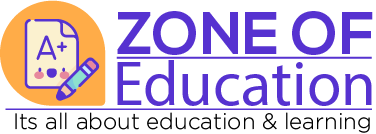
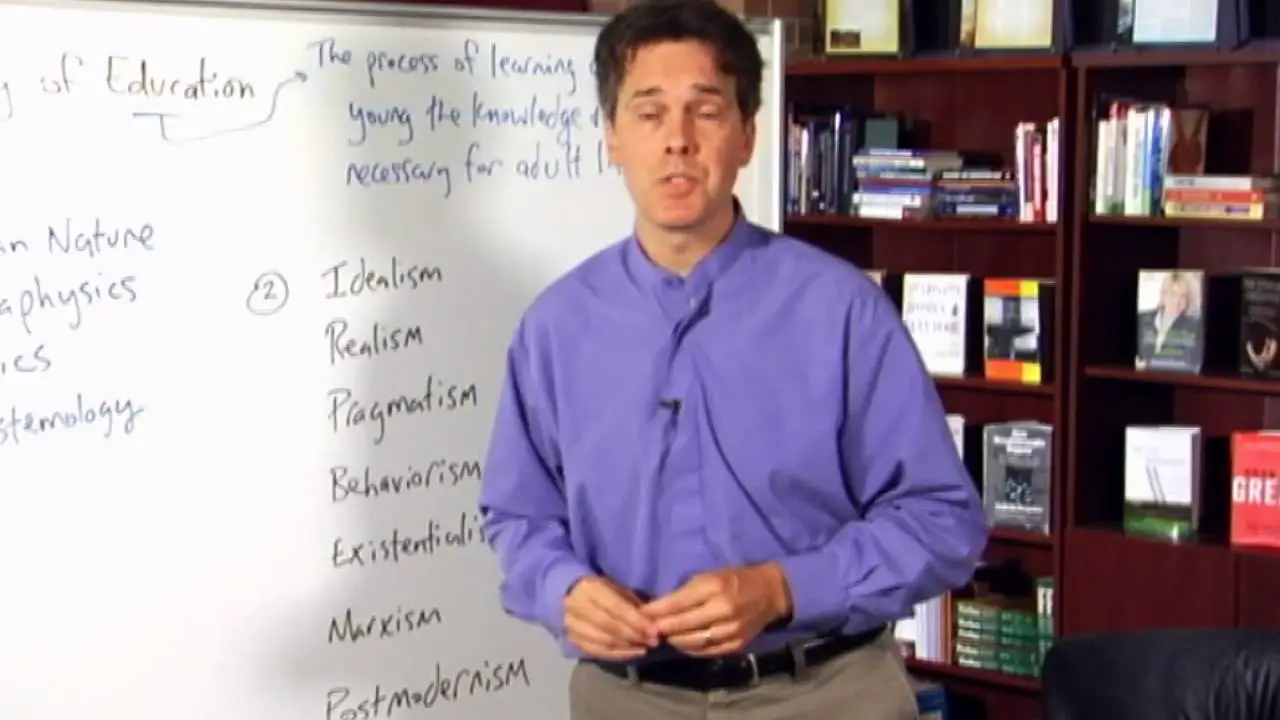

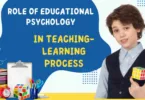
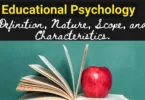
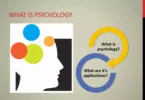

[…] and imitating when learning, which is at the heart of the demonstration method. To know what different educational philosophies say about the demonstration method, each has its unique point of view. As idealists believe in […]
[…] instruction holds significant importance in the realm of education due to the following […]
[…] updated: Keep up with the latest research, trends, and best practices in education. Attend professional development workshops or conferences to enhance your knowledge and […]
[…] Western civilization and the lasting ideas and concepts of education. Their ideas continue to shape educational policy and practice […]
[…] pursuing knowledge and wisdom, and forming a solid moral character. As such, it remains an important and influential philosophical theory in Education. Idealism is a philosophical theory that emphasizes the role of ideas and consciousness in shaping […]
[…] organizational strategies within the classroom. By teaching students how to stay organized, educators can help them develop important life skills that will benefit them beyond the classroom. One effective strategy is to provide […]
[…] belief that one’s abilities can be improved through hard work and dedication. This mindset is important in education, as it can help students overcome challenges and persevere through difficult tasks. Using HLSM, […]
[…] problems that have slowed its growth and development. Some of the most significant issues with the education system in Pakistan are that it doesn’t have enough money and resources; not enough p…. Pakistan’s education system only gets a small portion of the country’s budget. Because […]
[…] must employ various student-centred and inclusive instructional practices to implement child-centred education. Individualizing instruction to match the requirements of specific pupils is one technique. For […]
[…] and reliable information that can guide instructional strategies, curriculum development, and educational policy. Effective assessment practices contribute to fostering a culture of continuous improvement in […]
[…] as overly simplistic. Establishing rules and procedures at the start of the school year is a common practice among educators, as education experts assert that school and classroom management seeks to promote student […]
[…] Language Teaching (CLT) has its roots in a shift in language education philosophy that emerged in the 1970s. Before this period, language instruction primarily focused on grammar […]
[…] is a philosophy of education that emphasizes the importance of experiential learning and the use of hands-on activities to promote learning. It views education […]
[…] assessment is a form of assessment in which students evaluate the work of their peers. It is an important part of the educational process, as it allows students to become active participants in the assessment process rather than […]
[…] documents provide comprehensive overviews of differentiated instruction, examples of systems, and practical tips for educators can access these PDF resources to gain a deeper understanding of differentiated instruction and […]
[…] Philosophy has played an important role in shaping education throughout history. Philosophers have explored fundamental questions about the purpose and nature of education. […]
[…] time. This information can inform instructional decisions, identify areas for assessment, and make important educational decisions such as promotion, graduation, or entrance into higher education […]
[…] in teams, students choose a project that suits them. Personal projects allow students to select important themes and take charge of their education. It promotes self-directed learning, time management, research, and critical thinking. Teachers […]
[…] educators facilitating experiential learning and problem-solving opportunities, practical education values experiences and […]
[…] different schools or districts. This data allows for targeted interventions and identifying best practices to improve educational […]
[…] experience and that concepts should be examined through experimentation. In addition, he felt that education ought to be practical, learner-centered, and heavily focused on real-world applications. James’s theories […]
Thank you very much for sharing, I learned a lot from your article. Very cool. Thanks. nimabi
Thank you very much for sharing, I learned a lot from your article. Very cool. Thanks. nimabi
[…] to uncover hidden power structures. This includes examining textbooks, classroom discussions, and educational policies. Identifying how language may reinforce or challenge societal norms helps create a more inclusive […]
Hi to all, the contents present at this site
are actually awesome for people experience, well, keep up
the nice work fellows. I saw similar here:
e-commerce and also here: sklep
[…] is evident from the foregoing account that idealists believe the experiences of both the educator and the educand to be of great importance. Both of them should be active and they should indulge in the mutual exchange of experience so that […]
[…] that we understand the differences between research paradigms and conceptual frameworks, it is important to explore the practical uses of these concepts in designing research projects. Designing research projects involves […]
[…] education. Pragmatists believe that the aim of education is a comprehensive practical education, a concept of […]
[…] has made significant contributions to education, much like other philosophies of education. One of its key contributions is the promotion of child-centered education, emphasizing the […]
[…] Why is behavior management important in education? […]
[…] if you are interested in details, then read the entire article. Essentialism is an educational Philosophy that recommends to focus on what is most important in education. This means cutting out the non-essential elements and focus on what is truly […]
[…] determining the purpose of the assessment is paramount. By understanding the definition and importance of assessment in education, we can appreciate its significance in teaching and learning. Assessments serve a specific purpose: […]
Hi! Do you use Twitter? I’d like to follow you if that would be okay.
I’m absolutely enjoying your blog and look forward to new updates.
I saw similar here: sklep online (dommody.top)
and also here: sklep
Thanks for sharing. I read many of your blog posts, cool, your blog is very good.
Wow that was unusual. I just wrote an extremely long comment but after I
clicked submit my comment didn’t appear. Grrrr…
well I’m not writing all that over again. Anyhow,
just wanted to say superb blog! I saw similar here: Ecommerce
Hello to all, how is the whole thing, I think every one is getting more from this web site, and your views
are fastidious in favor of new users. I saw similar here: Ecommerce
[…] increasing emphasis on evidence-based practice in education parallels the broader trend in various disciplines. However, the interpretation and application of […]
[…] potential and become lifelong learners who are equipped to thrive in a rapidly evolving world. As educators continue to innovate and adapt their teaching practices, personalized learning stands as a beacon of progress and possibility in the pursuit of educational […]
[…] other systems of philosophy of education, naturalism has also made an important contribution to education. It made education Pedocentric, […]
[…] Evaluation and Assessment: Educational psychology conducts evaluations and assessments to measure the effectiveness of educational programs, interventions, and practices. It uses various assessment tools and methodologies to gather data, monitor progress, and make informed decisions about educational policies and practices. […]
[…] of educational systems. It serves as a vital tool for informing decision-making, improving educational quality, ensuring accountability, and facilitating continuous improvement in educational…. Despite its challenges, effective evaluation practices contribute to the advancement of […]
[…] Educational psychology can provide insight into many aspects of educational practices. It offers important ideas about learning and about influence in learning in families, business and industry, and the community. It also bears on educational administration, curriculum development, counseling, and other educational activities. However, this unit of educational psychology is most concerned with the teaching and learning processes in the classroom. […]